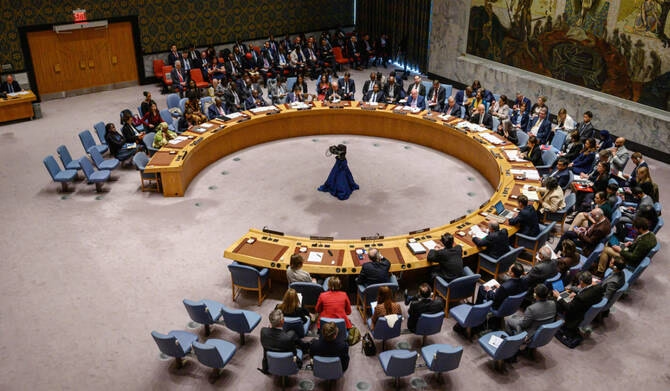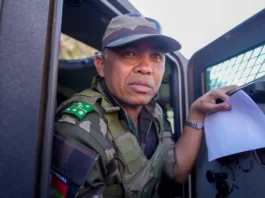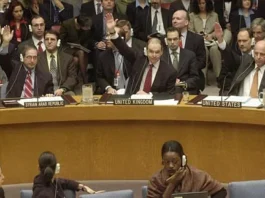Background and Context
Resolution 2803 (2025) was adopted by the United Nations Security Council against the backdrop of an enduring conflict in Gaza, which has persisted for decades. The Gaza conflict, characterized by a complex interplay of political, social, and military challenges, has deep-rooted historical origins that trace back to the mid-20th century with significant escalations occurring at various intervals. The humanitarian crisis in Gaza has been aggravated by repeated bouts of violence, particularly between Hamas and Israel, leading to significant casualties, displacement, and destruction of infrastructure.
Previous international efforts aimed at stabilizing the situation in Gaza have had mixed results. Initiatives such as ceasefire agreements and meditative diplomacy, often spearheaded by regional powers, have been implemented sporadically. However, these measures have frequently faltered under the weight of ongoing hostilities and mutual distrust between the conflicting parties. Countries such as Egypt and Qatar, along with international entities like the United Nations, have played crucial roles in mediating these efforts, yet sustainable peace has remained elusive.
The resolution’s adoption also reflects the growing concern among major global powers regarding the implications of the Gaza conflict for regional and international security. The United States, Russia, and the European Union, among others, have recognized the need for a comprehensive approach that involves not only military support but also socio-economic development and dialogue facilitation. These nations have acknowledged the critical importance of stabilizing Gaza to prevent spillover effects in the broader Middle East, which could exacerbate existing tensions and lead to broader conflicts.
Resolution 2803 (2025) serves as a pivotal moment in the context of international relations and peacekeeping efforts. It underscores a collective acknowledgment that a multifaceted strategy is necessary to address the protracted issues in Gaza, fostering a more stable and secure environment for its inhabitants while paving the way for future peace negotiations.
Key Provisions of Resolution 2803
Resolution 2803, adopted by the United Nations Security Council, outlines several vital provisions aimed at mitigating the ongoing Gaza conflict. Central to the resolution is the endorsement of a comprehensive plan, primarily supported by the United States, intending to foster lasting peace in the region. The key elements of this plan culminate in the establishment of a ‘board of peace,’ which is tasked with overseeing and implementing measures necessary for conflict resolution.
One significant aspect of Resolution 2803 is the authorization of the International Stabilization Force (ISF). This temporary force will be deployed to provide security and stability during the transitional period while the board of peace undertakes its mandate. The International Stabilization Force will consist of personnel from various nations, demonstrating a collective international commitment to restoring order and facilitating peace efforts. This is particularly crucial given the complex dynamics of the Gaza conflict, where the presence of such a force could help to de-escalate tensions and allow humanitarian efforts to proceed unimpeded.
Furthermore, the resolution emphasizes the resumption of humanitarian aid as a fundamental goal. It recognizes the need for urgent assistance to the affected populations within Gaza, who have endured significant hardships due to ongoing strife. The planned phased withdrawal of the Israel Defense Forces (IDF) is another important provision that aims to create the conditions necessary for a sustainable peace. This withdrawal is intended to be gradual, allowing for monitoring and evaluation of the security situation by the board of peace and the ISF.
Overall, the provisions outlined in Resolution 2803 represent a comprehensive approach to ending the Gaza conflict, fostering an environment conducive to lasting peace through international cooperation and strategic planning.
Support and Praise for the Resolution
The adoption of Resolution 2803 by the UN Security Council has garnered widespread support from a diverse array of member states, reflecting a collective commitment to addressing the ongoing conflict in Gaza and fostering stability in the region. Prominent among the supporters, the United States characterized the International Stabilization Force (ISF) as a vital mechanism for peace and security. The U.S. administration underscored the necessity of international cooperation in promoting stability and ensuring the protection of civilians, highlighting the potential for the ISF to facilitate dialogue and provide humanitarian assistance effectively.
Algeria, representing voices from the Global South, expressed enthusiasm regarding the resolution, emphasizing the importance of international measures to support Palestinian self-determination. The Algerian delegation pointed out that this resolution represents a crucial step towards addressing the longstanding grievances faced by the Palestinian people and reaffirmed Algeria’s commitment to the pursuit of justice and equality for Palestine as a sovereign state.
The United Kingdom also welcomed the resolution, underscoring its significance in creating an environment conducive to lasting peace. The UK government articulated its belief that the presence of the ISF would provide essential support for the Palestinian Authority, enabling it to strengthen governance and deliver essential services, thereby cultivating a climate for potential statehood. Other supportive nations echoed these sentiments, articulating hope that the ISF would act as a catalyst for negotiations between Israel and Palestine, ultimately leading to a comprehensive and sustainable peace agreement.
Additionally, numerous member states expressed optimism about the potential for the ISF to enhance regional cooperation and security. The resolution’s support across various geopolitical contexts highlights the recognition of the necessity for a multifaceted approach to peace in a historically volatile region, reinforcing the United Nations’ role as a facilitator of dialogue and cooperation.
Criticisms and Concerns Raised by Member States
The recent resolution 2803 (2025), which authorizes an International Stabilization Force (ISF) in Gaza, has attracted significant criticism from various member states, notably from abstaining countries such as China and the Russian Federation. These nations expressed their objections rooted in the resolution’s perceived vagueness and its failure to articulate a clear two-state solution. This lack of precision raises concerns about the ISF’s mandate and the effectiveness in fostering lasting peace in the region.
China emphasized the importance of a definable framework that aligns with international consensus on achieving a two-state solution, arguing that without such clarity, the risks associated with deploying an international force may overshadow its intended benefits. The Russian Federation echoed these sentiments, stressing that further humanitarian crises could emerge if the ISF is not successfully integrated with comprehensive diplomatic efforts aimed at resolving the core issues of the Gaza conflict.
Moreover, countries like France and Pakistan have also raised concerns regarding the anticipated operational scope of the ISF and the implications of its involvement in such a volatile environment. French officials underscored the necessity for specificity in the mandate to mitigate the risk of escalation between conflicting parties. Pakistan, highlighting historical precedents, warned against potentially entangling the ISF in military confrontations rather than facilitating reconciliation.
The criticisms reflect a broader apprehension surrounding the international community’s approach to the Gaza situation. While the intent behind resolution 2803 may be to stabilize the region, the varying perspectives among member states underscore the complexities of international intervention. Ultimately, these concerns highlight the ongoing tensions in the global discourse on conflict resolution and the necessity for cohesive strategies that prioritize peace and diplomacy over military engagement.




